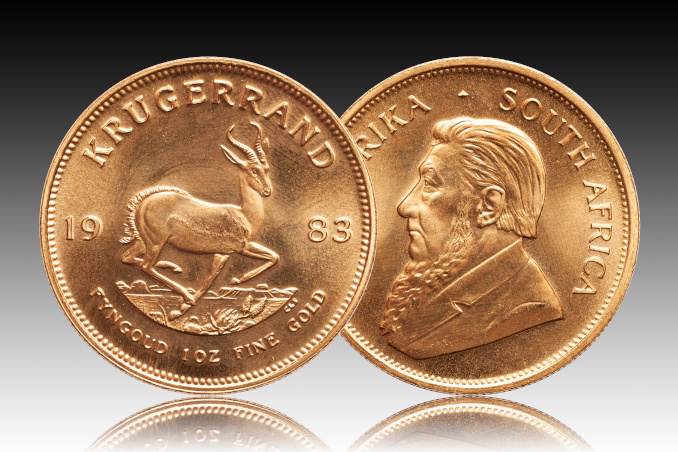
Nothing real can be threatened.
Nothing unreal exists.
~ A Course in Miracles
[CAF Note: I published this comment in September 2017. I am republishing as confusion persists on the desirability of numismatic coins. My opinion? Franklin Sanders is being kind – read on.]
By Catherine Austin Fitts
Franklin Sanders has written an article “What is a Numismatic Coin, What the Law Really Says… and Why You Should Not Buy Them!.” He defines the numismatic coin:
“The loosely used, popular definition of a “numismatic” coin is one that collectors will pay a premium for. When used as “numismatic” versus “bullion” coin, people usually mean a collector’s coin versus a coin sold for a small premium over its metal value. The first is an investment in a coin, never mind its precious metal content; the second is an investment in silver or gold, never mind that it’s a coin.”
If someone is aggressively marketing numismatic coins, at Solari we do not post any of such marketer articles and interviews on the Solari Report.
This Solari choice has a history.
When I first started learning about precious metals, the best dealers I found were adamant that numismatics are inferior investments. Two reasons are primary–
- Their commissions are outrageously high.
- The premise behind numismatics is unsound – that they are safe in the event of confiscation, justifying the commissions that the dealers earn, and that confiscation of private precious metals holdings is likely.
Then, I hear stories from reliable sources about salesmen for numismatic dealers taking customers to the cleaners. I can watch the price of the numismatics coins significantly underperform as the price of bullion soars. I came to the same conclusion – numismatics are poor investments.
At one time, I occasionally published stories from Mike Ruppert’s website, From the Wilderness. I was surprised one day to see him carrying ads for a precious metals dealer who aggressively marketed numismatics. I called him, explained the situation, and strongly recommended that he take the ad down.
It turned out he did not do so. Then I got a call from a Solari Report subscriber who claimed that he had been badly taken advantage of by the dealer, whom he had presumed to be reliable because Mike Ruppert was marketing his ads and I had linked Solari to Mike’s website.
By this time Mike Ruppert was in South America and had a colleague editor running his website. I called the editor and explained that I had reviewed the subscriber’s transactions and found what had happened was unethical. In my opinion, the subscriber had been badly burnt relative to the likely performance of a purchase from a reputable dealer. From the Wilderness needed to take the ad down before any more readers were harmed. After much back and forth, I was asked to speak with one of the From the Wilderness writers who, it turned out, was working as a salesman for the dealer in question. He explained that it was all right to charge commissions that were significantly above the market because he had a young daughter and needed the money.
I believe that this same excuse is used to justify trillions in black budget fraud – we need the money.
I called Mike in South America and the editor to let them know that if they did not take down the ad, I would sever ties to Mike and From the Wilderness and make public my reasons for doing so.
Mike took down the ad. It was one of my several disagreements on integrity issues with Mike, which ultimately ended our association.
One thing I discovered in that instance and many more since starting Solari.com is the risk of association. If I invite someone as a guest to the Solari Report, viewers may assume that forever more I shall agree with that guest on every topic. Consequently, if I invite a nonfinancial person onto the Solari Report and three years later the fellow starts doing radio shows with recommendations vis-à-vis financial markets that I think uninformed or even crackpot, some subscribers may nevertheless assume some credibility thereof on this topic and that I am likely to agree after the one previous Solari Report appearance.
Not so.
I invite guests whom I believe are people of integrity – people sincerely interested in understanding and communicating reality and share a desire to help others succeed. I agree with them on some things. I rarely agree with them on all things. I never invite people who I believe systematically do harm. Indeed, I have been known to remove Solari Reports from the archives when I have a post-publication concern about guest advice or integrity.
I also post articles by and interviews with people whom I do not know or necessarily agree with – but their material may deliver something useful or important.
However, whatever else they say or do, if they are marketing numismatics or marketing for a firm that does, they are not going up at the Solari Report.
Please do not send such links or recommendations. And, if you see me err by posting a link to someone marketing numismatics, let me know. You will earn a big thank you and a complementary month on your subscription!
Beware Marketing with Entrainment & Subliminal Programing!
[CAF Note: I am a lot more concerned that government operations and corporate contractors and related media are going to confiscate your mind rather than your precious metals. If your mind is confiscated, all of your attention, time and assets can be influenced, directed or harvested on the most economic basis.]
Solari Report: Entrainment, Subliminal Programming and Financial Manipulation
Related Reading:
Sanders, Franklin. “What is a Numismatic Coin: What the Law Really Says…and Why You Should Not Buy Them,” in The Moneychanger.
What Percentage of My Assets Should I Hold in Precious Metals?
Precious Metals Market Report – See historical reports in Library at Subscriber Resource Center

